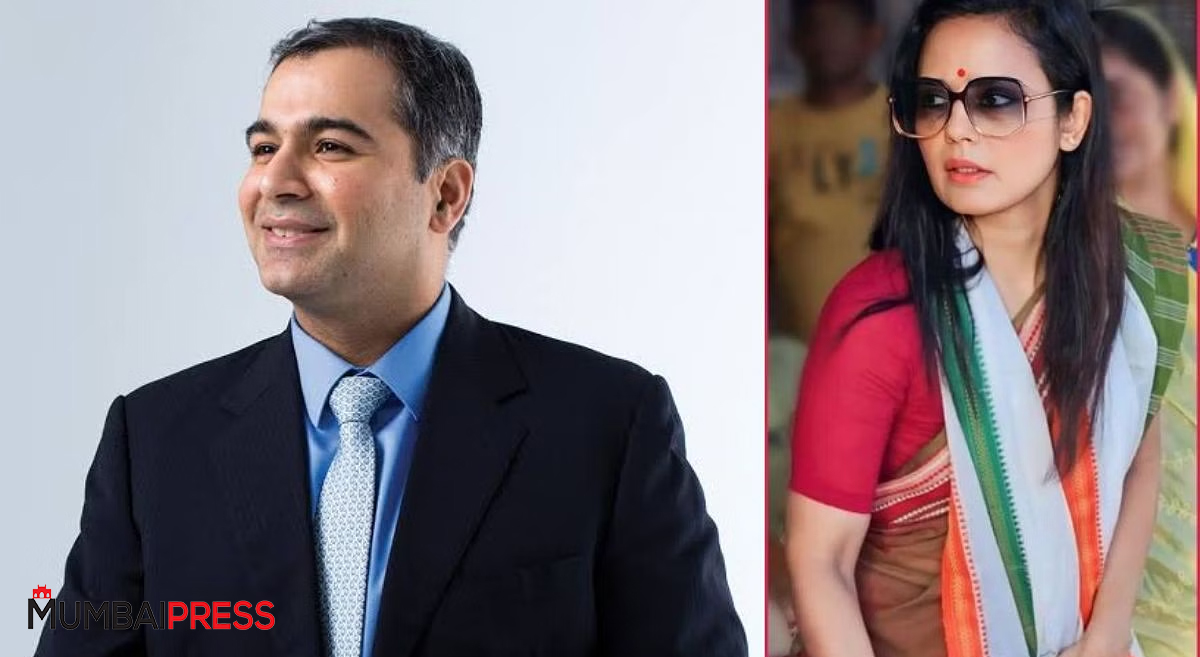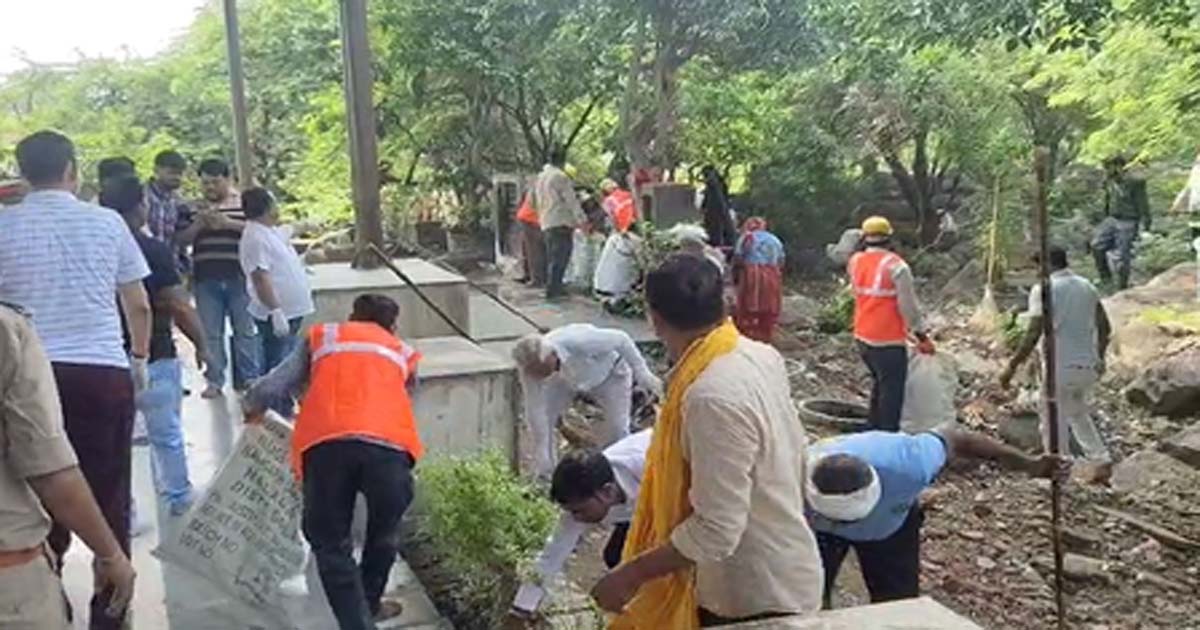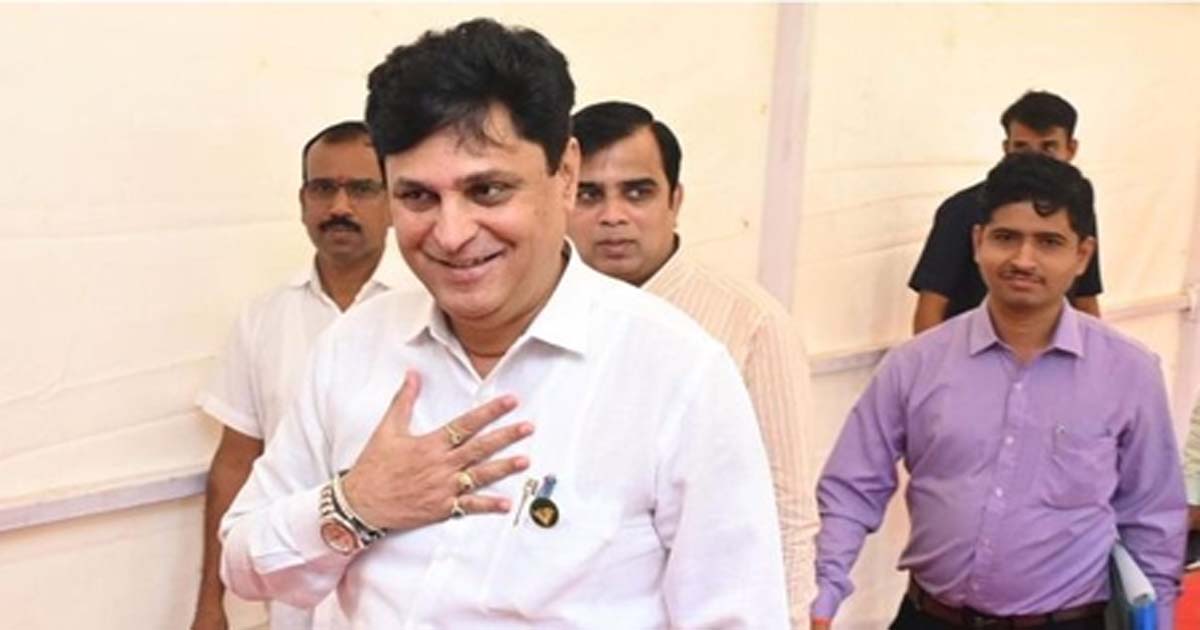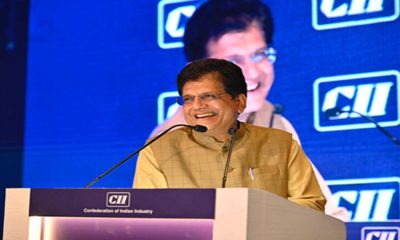Politics
From Targeting PM Modi To Demanding Luxury Items: 10 Explosive Claims By Darshan Hiranandani About Mahua Moitra

In a startling development, Darshan Hiranandani, the CEO of the Hiranandani Group, has made a series of explosive statements in a signed affidavit, alleging his involvement in aiding TMC MP Mahua Moitra in her efforts to attack the Adani Group in Parliament. The controversial revelations have sent shockwaves through the political and business communities, raising questions about the extent of influence and collaboration between business leaders and political figures.
Here are the ten explosive statements made by Darshan Hiranandani in his signed affidavit:
– Hiranandani disclosed a long-standing personal friendship with Mahua Moitra, which began when they met at the Bengal Global Business Summit in 2017.
– He believed that their friendship was based on their differing political ideologies, which added depth to their relationship.
– The two friends maintained close ties through regular in-person meetings, telephone conversations, and social gatherings, both in India and abroad.
– Hiranandani described Mahua Moitra as a dominating and assertive personality, who would insist on immediate assistance when requesting help.
– After her election as a Lok Sabha MP in 2019, Moitra’s ambition to establish herself on the national stage prompted her to target Prime Minister Narendra Modi by attacking Gautam Adani and his business group, as both hailed from Gujarat.
– Moitra leveraged existing resentment and jealousy within certain sections of the business, political, and media communities against Gautam Adani to support her efforts in tarnishing the Prime Minister’s image.
– She formulated questions meant to discredit the Adani Group and the government, using information provided by Hiranandani. He admitted to actively participating in this.
– Hiranandani went on to disclose that he had access to Moitra’s parliamentary account and was responsible for posting the questions she raised in Parliament, thereby contributing to her campaign.
– Moitra received support and unverified information from individuals such as Sucheta Dalal, Shardul Shroff, and Pallavi Shroff, who allegedly provided her with information to attack Gautam Adani and his companies. She also interacted with Congress leaders and international journalists from Financial Times, the New York Times, the BBC, etc.
– Hiranandani acknowledged that he fulfilled various personal requests from Moitra, including gifting expensive luxury items, contributing to the renovation of her official residence, covering travel expenses, and providing logistical support for her travels.
Birla refers matter to Parliament’s Ethics Committee
However, Mahua Moitra vehemently denied these allegations, calling the document shared by Hiranandani fake and the allegations baseless. Lok Sabha Speaker Om Birla has referred the matter to Parliament’s Ethics Committee for further investigation, and Hiranandani has deleted his social media account following the publication of his affidavit.
Mahua Moitra’s hits back at Darshan Hiranandani
In her reply, she asks Hiranandani why he did not release the letter officially if he had “confessed” to the claims.
“If indeed he was to witness all of my corruption, why was he with me during the time and why did he wait till now to make it public? Also if he wrote to the CBI and the LS speaker, why out of the 543 MPs would he forward the letter to Nishikant Dubey, whom I have repeatedly exposed in the parliament and the outside and against whom, I have filed pending privilege motions?”
In response to Moitra’s comments, Darshan Hiranandani has not yet provided an official response, and the authenticity of the affidavit remains a subject of controversy.
Maharashtra
Sashil Kodiyeri apologizes after tension over Marathi-Hindi controversy

Maharashtra: In the context of the Mumbai Marathi-Hindi controversy, Shishil Kodia has apologized for his controversial statement. He said that his tweet was misrepresented. I am not against Marathi. I have been living in Mumbai and Maharashtra for the last 30 years. I am a fan of Raj Thackeray. I constantly comment positively on Raj Thackeray’s tweets. I tweeted in my emotions and I made a mistake. This tense and tense atmosphere should end. We need a favorable environment to accept Marathi. So I request you to forgive me for this mistake for Marathi. Earlier, Shishil Kodia had made a controversial statement about Marathi and refused to speak Marathi, due to which MNS workers attacked and pelted stones at Shishil’s company WeWork. After which Shishil has now apologized to X
National
World-famous Mudiya Mela in Govardhan from tomorrow, cleanliness campaign launched

Govardhan (UP), July 5: As the world-famous Mudiya Mela will kick off in Uttar Pradesh’s Govardhan on Sunday, authorities have launched a cleanliness campaign.
Over 2 crore pilgrims are expected to reach Govardhan for the mela and perform Parikrama.
The cleanliness campaign, led by District Magistrate C.P. Singh, started on Saturday and focussed on cleanliness in key areas, including Parikrama Marg, Daanghati temple, and Giriraj ji.
DM Singh swept the land near the Govardhan temple, spreading the message of cleanliness.
As per the directions of the Uttar Pradesh government, efforts are being made to provide pilgrims with proper facilities and clean surroundings, he said.
The District Magistrate said people use polythene bags and indulge in littering as they don’t care about cleanliness, but now, as prior warnings have been given, strict action will be taken against violators.
The DM pointed out that maintaining cleanliness in the area was the responsibility of the temple management, but as it failed, “our team and locals of Govardhan are carrying out the cleanliness drive.”
Highlighting the importance of cleanliness, DM Singh said, “We aim to clean the entire Parikrama marg.”
He also shared that notices have been issued to those shops which have encroached on public land. The cleanliness campaign was made successful with the efforts of Govardhan SDM Neelam Srivastava, Govardhan Tehsil and Panchayat.
For the unversed, Mudiya Mela is observed in remembrance of Sanatan Goswami, the principal disciple of Lord Chaitanya Mahaprabhu.
Legends have it that when Sanatan Goswami passed away, his disciples did parikrama of the Govardhan after tonsuring their heads. Since then, this tradition has been followed.
Notably, the 468-year-old tradition continues to draw a sea of devotees.
The devotees perform a 21-km-long Parikrama of Govardhan.
The belief with the yatra is that it bestows peace and prosperity on the devotees.
National
Maha: Oppn slams NCP MLA for political remarks while presiding in Assembly

Mumbai, July 5: The opposition parties in Maharashtra took a serious objection to the political remarks made by the Assembly’s Presiding Officer Chetan Tupe while conducting the business in the House.
They said that it was not acceptable, demanding that the dignity of the chair must be maintained.
The issue was raised by the Congress Legislature Party leader Vijay Wadettiwar and it was supported by Bhaskar Jadhav (Shiv Sena-UBT) and Nana Patole (Congress).
They also asked, “Do those who make political statements have the right to be the presiding officer?”
Assembly Speaker Rahul Narwekar took a serious note and expressed serious displeasure, saying that such incidents should not happen in future.
“Those sitting as presiding officers should maintain letter and spirit of the law. It is necessary for the presiding officers to work within the framework of the rules given by the Constitution.”
The Speaker assured that the chair of the Speaker will not be used for political purposes.
He also told the House that he will take a decision in this regard in his chamber.
Earlier, Wadettiwar criticised the presiding officer for his political remarks during the discussion over a motion on farmer suicides and the current state of agriculture amid the state government’s apathy.
He appealed to the Assembly Speaker to reprimand the presiding officer Chetan Tupe.
“While the discussion was on, the Agriculture Minister and the officials of that department were not present, but the work continued. But since some members were not present, does the presiding officer Chetan Tupe have the right to sit in the chair and present the government’s position? While the chair has a certain dignity, it is not right to make political speeches from there, such a thing has not happened in the past,” Wadettiwar said.
He also said: “The presiding officer in his statements targeted opposition party members for their absence while saying they speak about farmers but skip the proceedings. Tupe said he has been in the House for 13 hours and has not given out.”
He added that even though the presiding officer is conducting the business in the absence of a Speaker, he is treated as the Speaker and it is binding on him not to make any political statements.
“While it is the responsibility of the government to ensure that the House functions properly, it is the responsibility of the Parliamentary Affairs Minister to see whether the Ministers of the department are present in the House. In such a case, the custom and tradition should be followed from the highest position in the House,” Wadettiwar said.
-

 Crime3 years ago
Crime3 years agoClass 10 student jumps to death in Jaipur
-

 Maharashtra9 months ago
Maharashtra9 months agoMumbai Local Train Update: Central Railway’s New Timetable Comes Into Effect; Check Full List Of Revised Timings & Stations
-

 Maharashtra9 months ago
Maharashtra9 months agoMumbai To Go Toll-Free Tonight! Maharashtra Govt Announces Complete Toll Waiver For Light Motor Vehicles At All 5 Entry Points Of City
-

 Maharashtra9 months ago
Maharashtra9 months agoFalse photo of Imtiaz Jaleel’s rally, exposing the fooling conspiracy
-

 Crime9 months ago
Crime9 months agoBaba Siddique Murder: Mumbai Police Unable To Get Lawrence Bishnoi Custody Due To Home Ministry Order, Says Report
-

 National News9 months ago
National News9 months agoMinistry of Railways rolls out Special Drive 4.0 with focus on digitisation, cleanliness, inclusiveness and grievance redressal
-

 Maharashtra8 months ago
Maharashtra8 months agoMaharashtra Elections 2024: Mumbai Metro & BEST Services Extended Till Midnight On Voting Day
-

 National News10 months ago
National News10 months agoJ&K: 4 Jawans Killed, 28 Injured After Bus Carrying BSF Personnel For Poll Duty Falls Into Gorge In Budgam; Terrifying Visuals Surface






















